Books
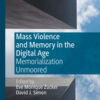
Mass Violence and Memory in the Digital Age: Memorialization Unmoored
By Eve Monique Zucker and David J. Simon. This volume explores the shifting tides of how political violence is memorialized in today’s decentralized, digital era. The book enhances our understanding of how the digital turn is changing the ways that we remember, interpret, and memorialize the past. It also raises practical and ethical questions of…
Read more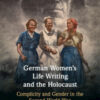
German Women’s Life Writing and the Holocaust: Complicity and Gender in the Second World War
By Elisabeth Kimmer. This important study examines women’s life writing about the Second World War and the Holocaust, such as memoirs, diaries, docunovels, and autobiographically inspired fiction. Through a historical and literary study of the complex relationship between gender, genocide, and female agency, the analyzes correct androcentric views of the Second World War and seek…
Read more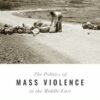
The Politics of Mass Violence in the Middle East
By Laura Robson. The Middle East today is characterized by an astonishingly bloody civil war in Syria, an ever more highly racialized and militarized approach to the concept of a Jewish state in Israel and the Palestinian territories, an Iraqi state paralyzed by the emergence of class- and region-inflected sectarian identifications, a Lebanon teetering on…
Read more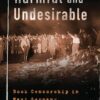
Harmful and Undesirable: Book Censorship in Nazi Germany
By Guenter Lewy. Like every totalitarian regime, Nazi Germany tried to control intellectual freedom through book censorship. Between 1933 and 1945, the Hitler regime orchestrated a massive campaign to take control of all forms of communication. In 1933 alone, there were 90 book burnings across 70 German cities, declared by a Ministry of Propaganda official…
Read more
Paramilitarism: Mass Violence in the Shadow of the State
By Ugur Ümit Üngör. From the deserts of Sudan to the jungles of Colombia, and from the streets of Belfast to the mountains of Kurdistan, paramilitaries have appeared in violent conflicts in very different settings. Paramilitaries are generally depicted as irregular armed organizations that carry out acts of violence against civilians on behalf of a…
Read more
Debates on Colonial Genocide in the 21st Century
By Marouf Hasian Jr. This book analyses the debates on colonial genocide in the 21st century and introduces cases where states are reluctant to acknowledge genocides. The author departs from traditional studies of the work of Raphael Lemkin or U.N. definitions of genocide so that readers can examine genocide recognition as a political act that…
Read more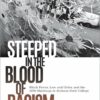
Steeped in the Blood of Racism: Black Power, Law and Order, and the 1970 Shootings at Jackson State College
By Nancy K. Bristow. Steeped in the Blood of Racism explores the essential role of white supremacy in causing the shootings and shaping the aftermath. By 1970, even historically conservative campuses such as Jackson State, where an all-white Board of Trustees of Institutions of Higher Learning had long exercised its power to control student behavior,…
Read more
Legacies of the International Criminal Tribunal for the Former Yugoslavia: A Multidisciplinary Approach
Edited by Carsten Stahn, Carmel Agius, Serge Brammertz, and Colleen Rohan. The International Criminal Tribunal for the former Yugoslavia (ICTY) is one the pioneering experiments in international criminal justice. It has left a rich legal, institutional, and non-judicial legacy. This edited collection provides a broad perspective on the contribution of the tribunal to law, memory, and justice. It explores…
Read more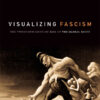
Visualizing Fascism: The Twentieth-Century Rise of the Global Right
Edited by Julia Adeney Thomas and Geoff Eley. Visualizing Fascism argues that fascism was not merely a domestic menace in a few European nations, but arose as a genuinely global phenomenon in the early twentieth century. Contributors use visual materials to explore fascism’s populist appeal in settings around the world, including China, Japan, South Africa, Slovakia,…
Read more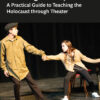
Enacting History: A Practical Guide to Teaching the Holocaust through Theater
By Mira Hirsch, Janet E. Rubin, and Arnold Mittelman. Enacting History is a practical guide for educators that provides methodologies and resources for teaching the Holocaust through a variety of theatrical means, including scripted texts, verbatim testimony, devised theater techniques and process-oriented creative exercises. A close collaboration with the USC Shoah Foundation I Witness program and the National…
Read more
